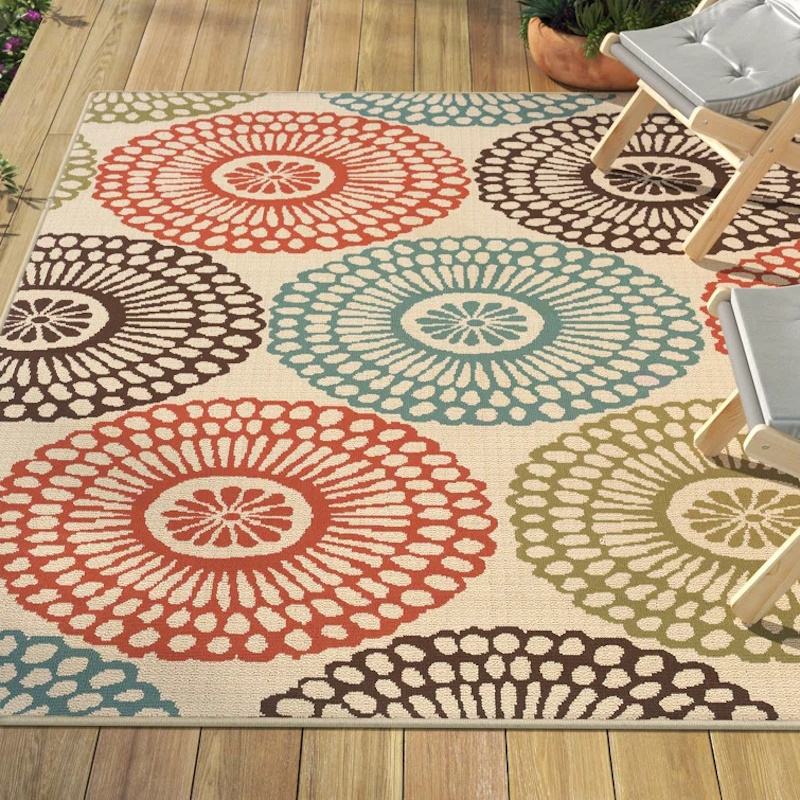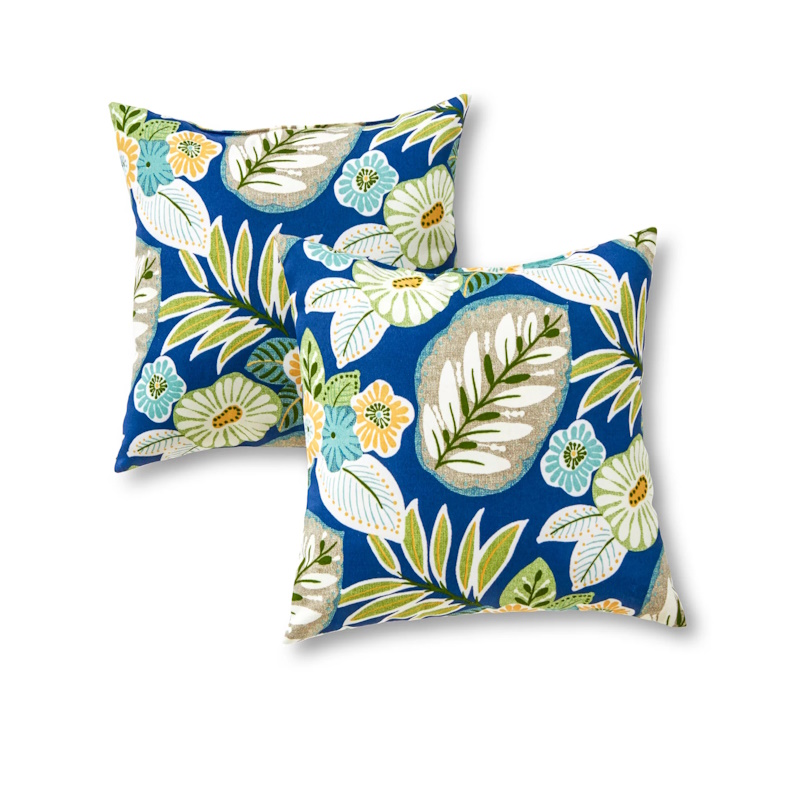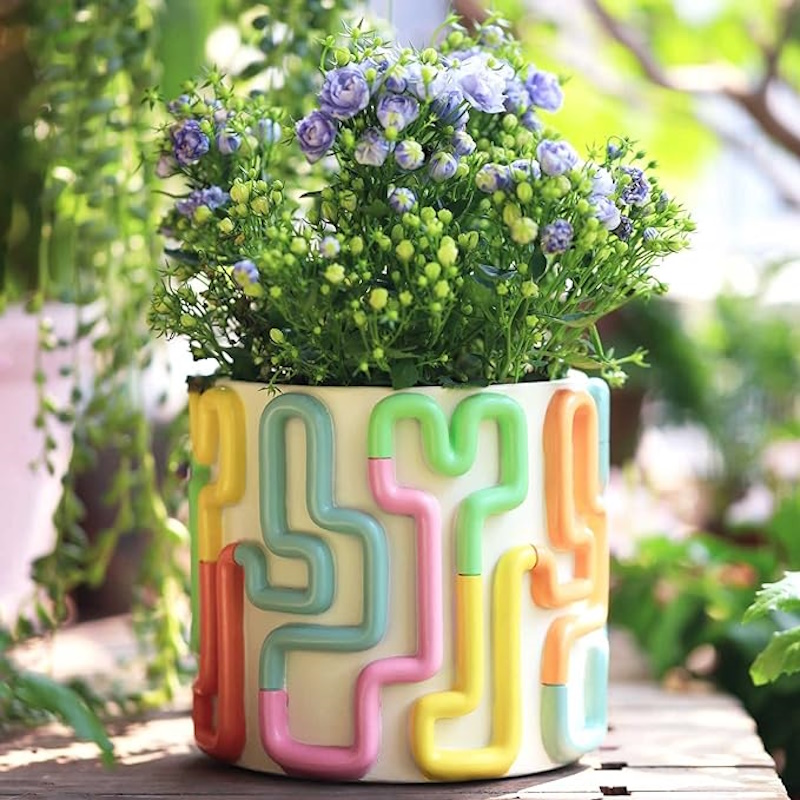How to garden on a north-facing balcony – 3 ways to create a shady green oasis
An urban space that is hidden from the sun can still offer plenty of opportunities for gardening

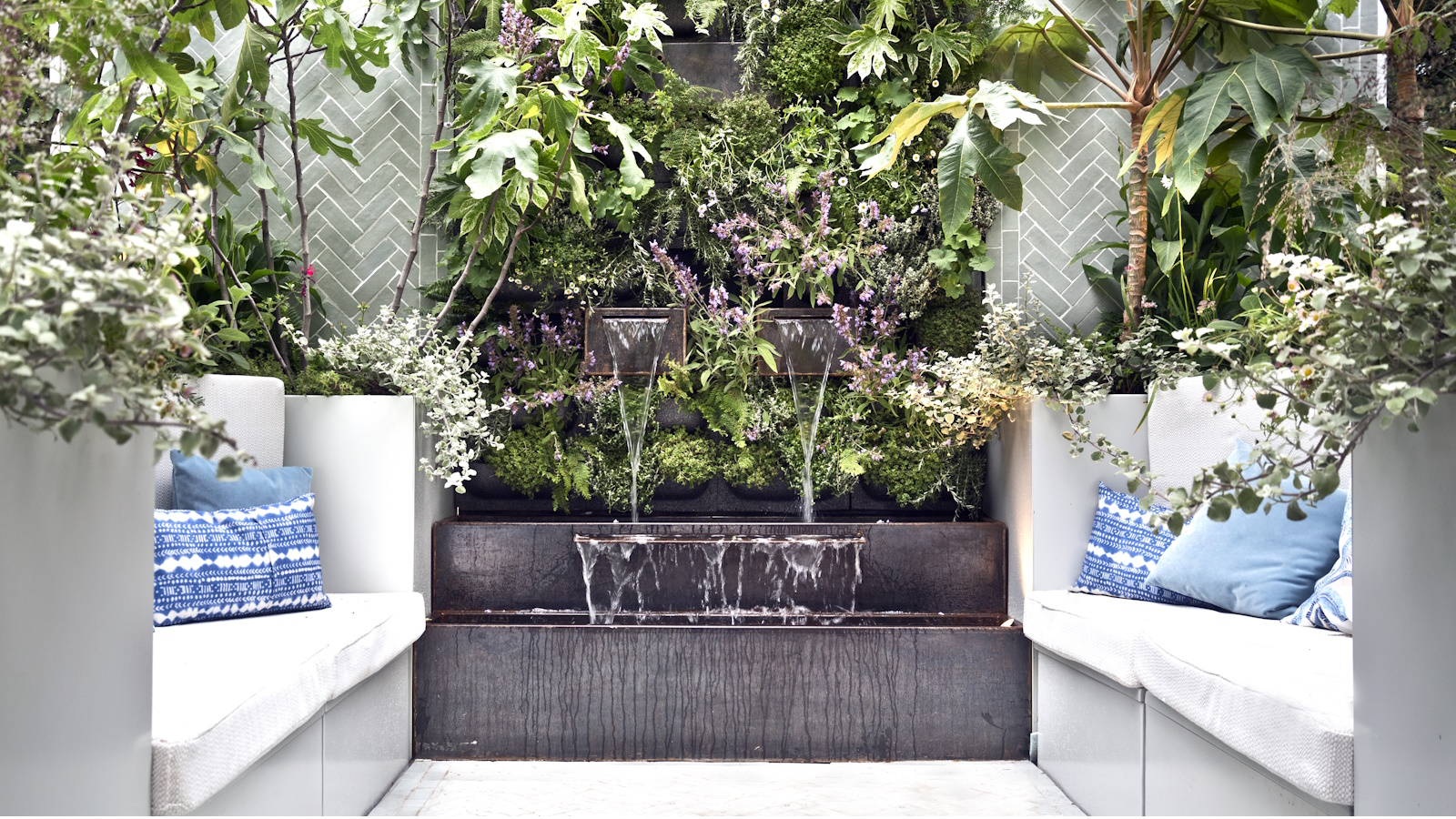
If you live in an apartment with a north-facing balcony, you're presented with two main challenges: limited sunlight and space. But don't worry, your shady urban outdoor space actually presents plenty of opportunities to create a thriving shade garden in the sky.
There are plenty of balcony garden ideas to explore and maybe you've already sought out the best plants for a shaded balcony, but north-facing also means you're facing colder winds among other conditions. However, it's still possible to create a beautiful green space by making careful planting choices and incorporating different features.
Urban garden experts have given us their top tips and suggestions for how to garden on a north-facing balcony with inspirational ideas to get you started on making the most of your outdoor space.
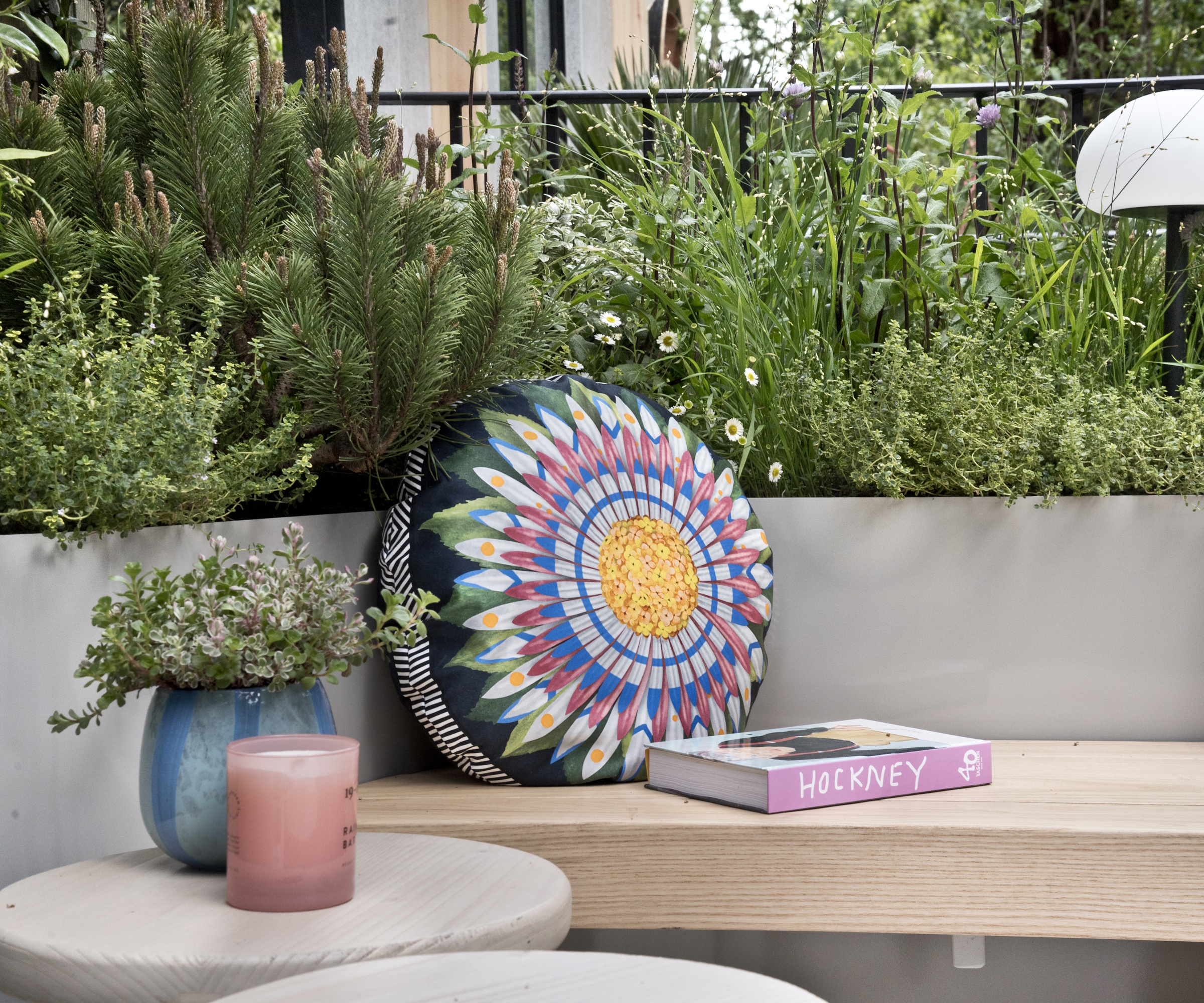
3 ways to garden on a north-facing balcony
Shade, cold wind and a lack of space should all be seen as opportunities for innovative gardening, say experts. North-facing balconies can be some of the most beautiful spaces to host, so long as you make careful choices. Here are 3 ideas for you to explore.
1. Use shade-loving plants
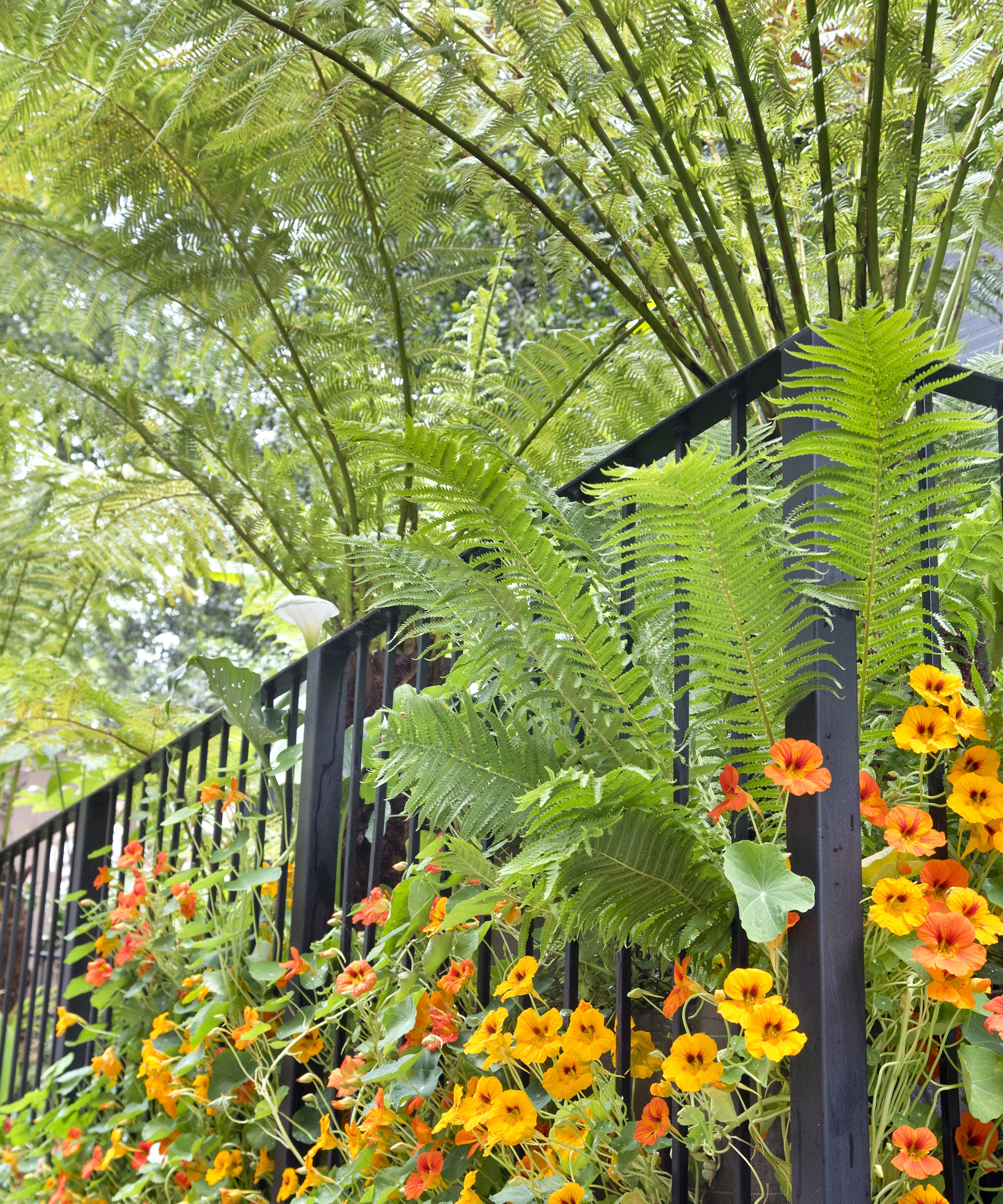
It sounds obvious, but the first place to start with transforming your north-facing balcony is choosing the right plants for the right place. When it comes to a balcony that receives limited direct sun, this means turning your attention to the best shade plants.
'North exposure balconies or patios often have great shade for growing lush shade-loving plants like ferns, shade annuals and perennials such as impatiens, begonias, bleeding hearts, or low light tropicals,' says Dr. Mike Arnold, professor of landscape and horticulture at the Texas A&M Department of Horticultural Sciences.
Luckily, there are plenty of interesting ferns for shade to grow, as well as part-shade perennials and more. Whether you want container plants for shade to fill your balcony or even want to explore the best indoor low light plants for houseplants to move outdoors during summer, there are so many plants to choose from that can adapt to the shadiness of a north-facing balcony.
It's always wise to research the plants that can grow best in your US hardiness zone before making some decisions, however.
Design expertise in your inbox – from inspiring decorating ideas and beautiful celebrity homes to practical gardening advice and shopping round-ups.

Mike has been with the Texas A&M Department of Horticultural Sciences as a professor of landscape horticulture and in other capacities since 2012 and 1993, respectively. Mike earned a B.S. in business administration, a B.S. in agriculture (horticulture major) and an M.S. in Landscape Horticulture at The Ohio State University. Then, he received a Ph.D. in horticultural sciences from North Carolina State University.
2. Choose smaller trees
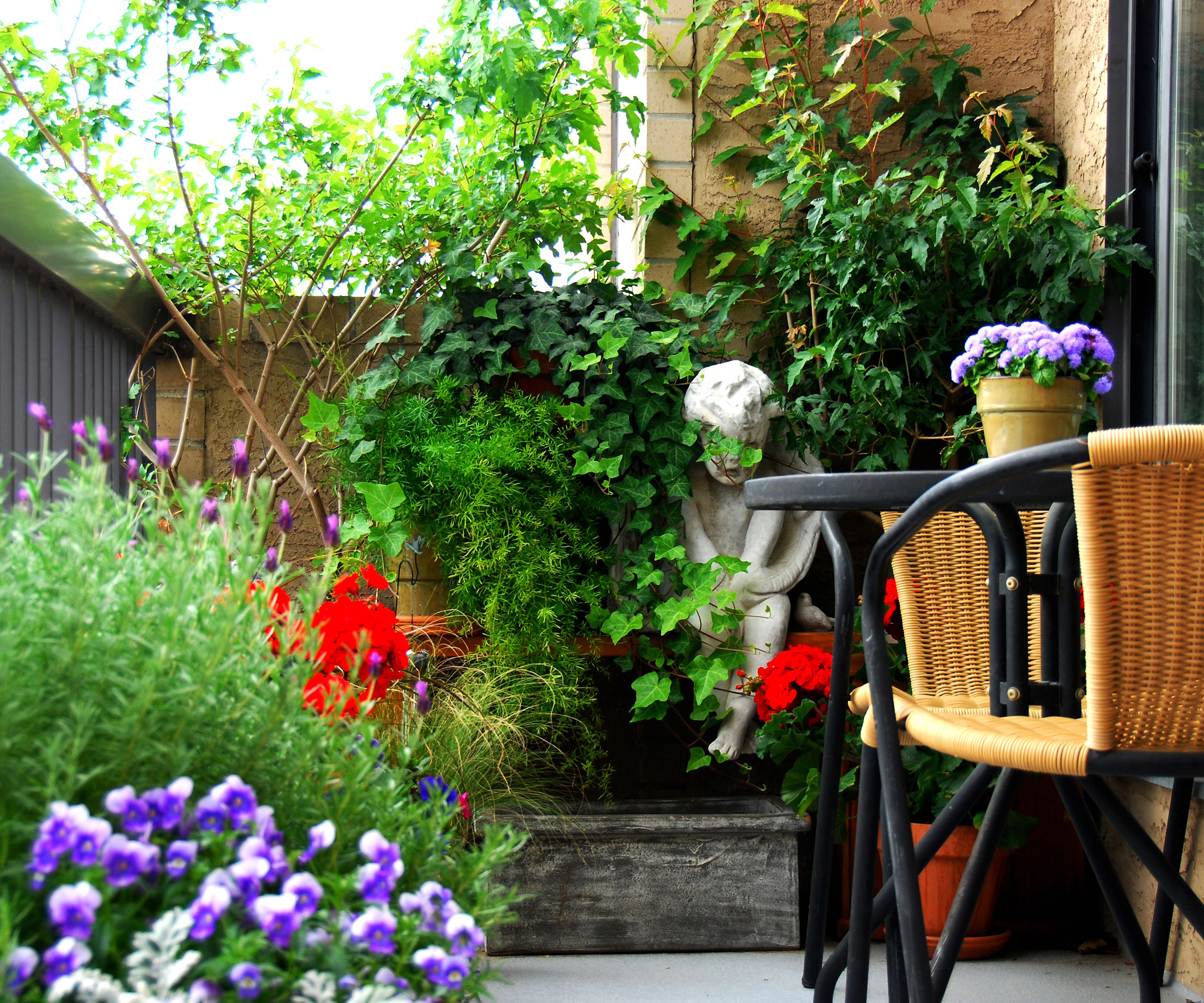
When your balcony is already limited in the amount of light it gets, it can be a good idea to not add anything that will block out the light you do receive. That's why you should choose smaller trees to grow in pots that aren't going to make big canopies over your outdoor space but still provide some height and structure.
This includes things like dwarf varieties of magnolia trees, cherry trees and even crab apple trees. Always make sure to check what can grow in your US hardiness zone, but there are trees for small gardens of all forms in different climates.
You can even opt for a low-maintenance tree for pots to spruce up your balcony with little ongoing effort. Whatever small trees you do go for, it can be wise to ensure that they are shade-tolerant trees and will be happy living on your north-facing balcony.
3. Opt for bright furnishings
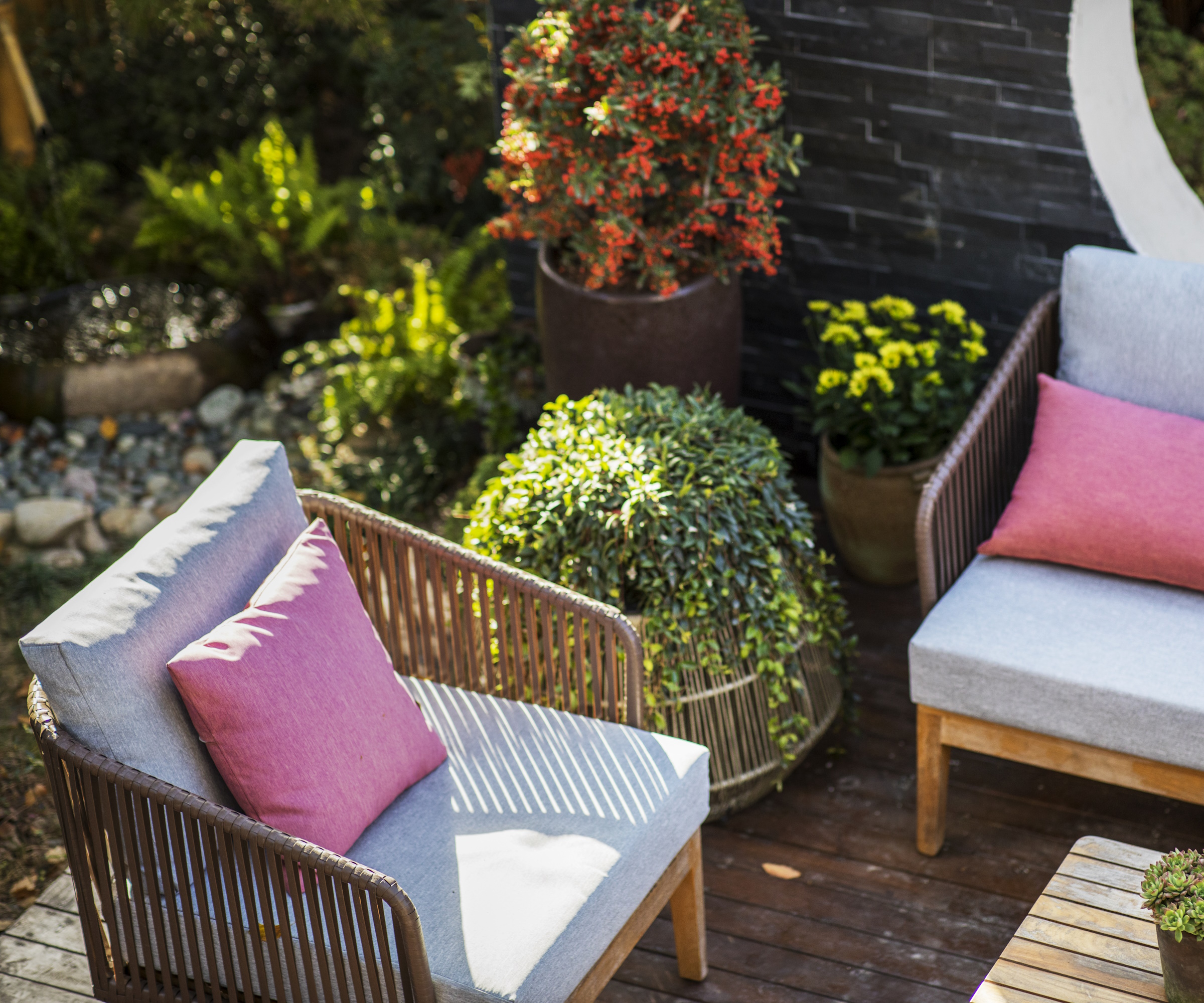
An easy way to spruce up your backyard is by creating an outdoor living room, and balconies are no different. In fact, there are plenty of small outdoor living room ideas that would work perfectly for a balcony space.
'North-facing balconies are much cooler than south-facing balconies and are more inviting places to garden during hot summer months,' notes Mike. You might find that during the hotter months, your north-facing balcony is the perfect spot to host guests comfortably - so why not make it a nice place to be?
Try adding an outdoor rug or bright throw pillows to add color and vibrancy to your balcony. The best outdoor furniture retailers offer a range of furnishings that suit any style, so that you can personalize your outdoor space to your liking.
You can also try incorporating bright planters for your balcony container garden, and even painting the backing wall a bright color if you are able to.
Brighten up your north-facing balcony
FAQs
How do I prepare my north-facing balcony for winter?
North-facing balconies don't receive direct sun during summer and will experience frequent cold and freezing winds during winter. It can be a good idea overwinter the plants you're growing on your balcony before frosts settle in. This might include bringing some potted plants indoors and wrapping any containers to keep roots warm. The best thing to do is research the kind of temperature and weather your plants can withstand and take action appropriately to protect them during colder months.
Gardening on a north-facing balcony has its challenges but also presents plenty of opportunities to create a green urban jungle to escape to during hotter weather. It just takes some careful planning, but you can still make the most of this outdoor balcony space.
Explore other north-facing garden ideas for inspirational ideas that you can replicate on your balcony.

Tenielle is a Gardens Content Editor at Homes & Gardens. She holds a qualification in MA Magazine Journalism and has over six years of journalistic experience. Before coming to Homes & Gardens, Tenielle was in the editorial department at the Royal Horticultural Society and worked on The Garden magazine. As our in-house houseplant expert, Tenielle writes on a range of solutions to houseplant problems, as well as other 'how to' guides, inspiring garden projects, and the latest gardening news. When she isn't writing, Tenielle can be found propagating her ever-growing collection of indoor plants, helping others overcome common houseplant pests and diseases, volunteering at a local gardening club, and attending gardening workshops, like a composting masterclass.
